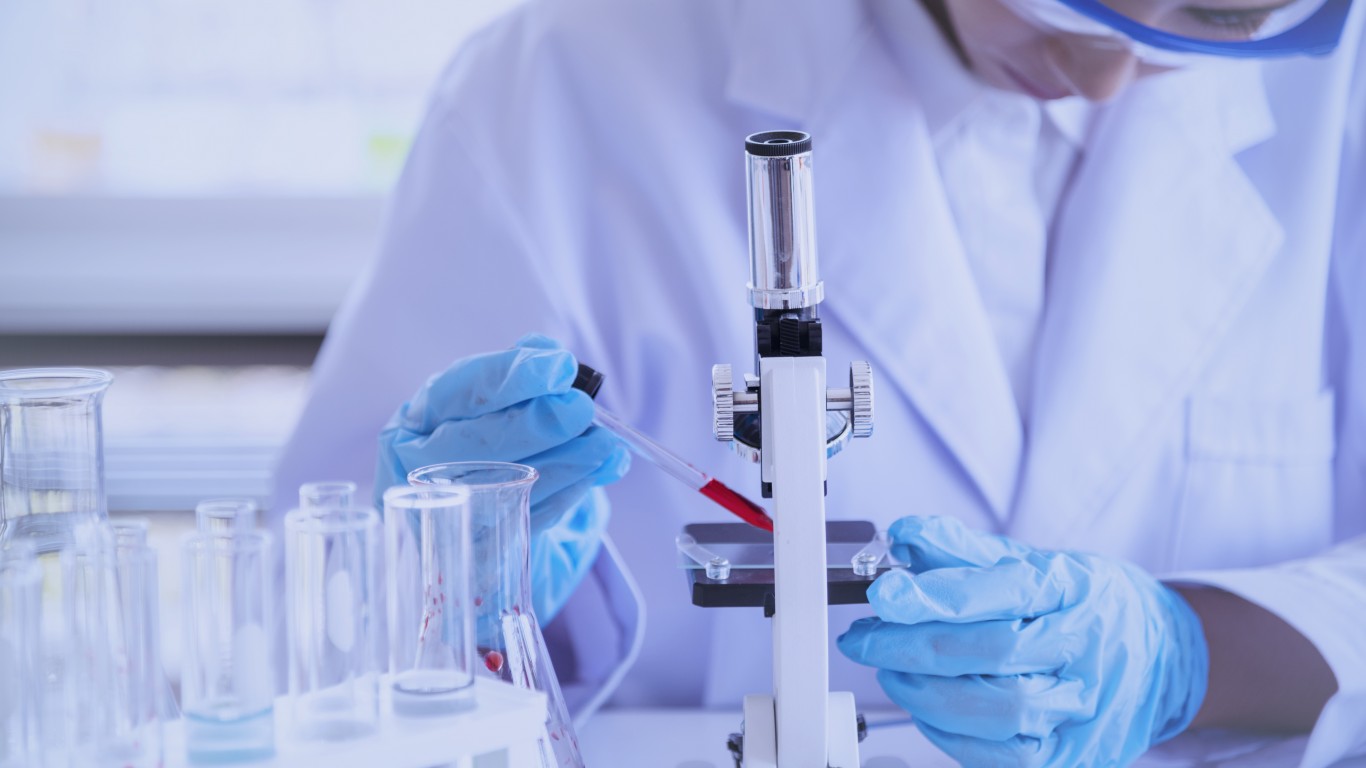Health and Healthcare
COVID-19: This Is Why America May Never Have Herd Immunity

Published:
Last Updated:

The rate of the spread of COVID-19 had slowed across America. Despite a new surge, increases in daily fatal and confirmed cases are still about half what they were three months ago. Nevertheless, 576,265 Americans had died as of Friday, which is about 20% of the world’s total. The global death total just moved above a staggering 3 million. Confirmed cases have reached 32,185,302 in the United States, or about 23% of the global number. Hospitalizations, which were over 100,000 a day during the peak wave, have dropped into the thousands.
Variants have become a large part of the conversation among public health officials and epidemiologists. One variant, first identified in the United Kingdom and known as B.1.1.7, is more transmissible than the strain that was dominant in the United States over most of the pandemic. The Centers for Disease Control and Prevention (CDC) also officially tracks these other variants: B.1.351, P.1, B.1.427 and B.1.429. Worries are that some may be more deadly than others and that vaccines may not protect against one or more variants.
Scientists believe that new variants will continue to appear, some of which may originate in America and others that may come from overseas. Tuesday, it was announced that “Scientists at the Texas A&M University Global Health Research Complex (GHRC) have identified a variant of the COVID-19 virus — ‘BV-1’ — that could present a new challenge to public health.”
At this point, according to The New York Times, 41% of Americans have been given at least one dose of a vaccine, and 27% are fully vaccinated. As of Wednesday, 286,095,185 doses have been delivered, and from those 222,322,230 shots have been given, or about 78%.
There has been a debate among scientists and doctors about when people will need additional doses. Some of this has to do with how effective vaccines are against variants.
One of the questions the rise of variants begs is whether the U.S. will ever reach “herd immunity”, when the number of Americans vaccinated and those who have been infected reaches 70% to 80% of the population. At that point, the spread of the disease should slow considerably. One important scientist worries this will not happen. Dr. Scott Gottlieb, the former commissioner of the U.S. Food and Drug Administration, told CNBC: “I don’t think we should be thinking about achieving herd immunity. I don’t know that we ever achieve true herd immunity, where this virus just stops circulating. I think it’s always going to circulate at a low level. That should be the goal, to keep the level of virus down.”
Essentially, that would make COVID-19 something like the seasonal flu, which has killed between 12,000 and 61,000 people annually per year since 2010 according to the CDC. The battle against COVID-19 will become never-ending.
Click here to see in which city in each state the most people have died of COVID-19.
The last few years made people forget how much banks and CD’s can pay. Meanwhile, interest rates have spiked and many can afford to pay you much more, but most are keeping yields low and hoping you won’t notice.
But there is good news. To win qualified customers, some accounts are paying almost 10x the national average! That’s an incredible way to keep your money safe and earn more at the same time. Our top pick for high yield savings accounts includes other benefits as well. You can earn up to 3.80% with a Checking & Savings Account today Sign up and get up to $300 with direct deposit. No account fees. FDIC Insured.
Click here to see how much more you could be earning on your savings today. It takes just a few minutes to open an account to make your money work for you.
Thank you for reading! Have some feedback for us?
Contact the 24/7 Wall St. editorial team.